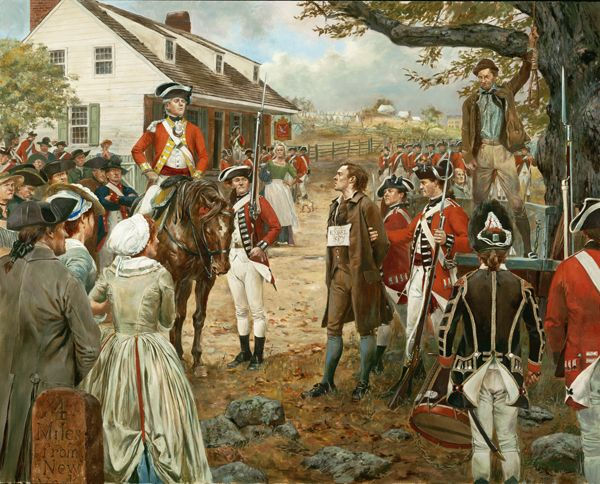Rev. John H. Weikel, the Radical Patriot
- Yen Ho
- Jul 31, 2021
- 3 min read
Updated: Sep 16, 2021
We all knew from our American History that the cause to fight for independence against the British tyranny was one of the foundations on how America was founded. There were patriots out there who did support freedom and liberty. Then there were the "super patriots."
In today's world, there are pastors and ministers who talk about politics and current events during their services. At Whitpain's Boehm's Church, there was a pastor who spoke strongly for the American cause during the Revolutionary War. His name was John H. Weikel.
John (Johannes) H. Weikel (Wickel) appeared before the Coetus in Philadelphia in 1774 where he asked for their permission to preach. They rejected his request, but John continued to preach anyways despite their rejection.
He preached at the Boehm's Reformed Church (1775-1779) and the Wentz's Reformed Church (1776-1779). There was a controversy with the sermon he preached from the Ecclesiastes 4:13 (King James Version) that relates to the war:
"Better is a poor and a wise child, than an old and foolish king, who will no more be admonished."
The Church and The Revolutionary War
There was a decision from churches in the 13 colonies whether to support the American cause or support the King of England.
"For some this dissidence was too great to bear. During the campaign over half the Anglican priests in America gave up their ministries rather than go against their promise to serve the king, while some even supported the British forces. For others the Revolution became something of a religious crusade. Jonathan Mayhew, the pastor of the West Church in Boston, gave moral sanction to the war by preaching that opposition to a tyrant, in this case the British occupiers, was a 'glorious' Christian duty... Those who were partial to millennialist ideals believed that Christ would reign on earth for 1000 years and that the victory over Britain was a clear sign of God’s partiality for the United States. Anglican ministers who had stayed in the colonies started to construct an independent American church. From this the Protestant Episcopal Church of the United States was eventually established. Methodists were also compelled to form the all-American Methodist Episcopal Church. Presbyterians followed suit and began to view their church as 'American' in nature, reducing the influence of the Church of Scotland."
- History Detectives (PBS)
The quote he used from the Bible created excitement from his people that he was forced to resign. Half of his parishioners demanded for his resignation.
"He had left, however, before April, 1779, because at the meeting of Coetus in that year a petition was laid before Coetus from Worcester and Witpen asking for a minister. Coetus replied that they should first acknowledge their un-Christian conduct in accepting a man who was not called by God or his Church, should ask for forgiveness and promise henceforth to submit to the Christian regulations of the Reverend Coetus."
There were other incidents when John used his horses as enclosures in front of his house and fired his pistols over his head as a way to train himself to shoot for the war.
General George Washington heard the shots when passing by the parsonage, thinking it was an ambush. He ordered his staff to surround the parsonage and sent his aide to demand the sniper's surrender.
Bibliography
Good, James Isaac. History of the Reformed Church in the United States, 1725-1792. (Reading: Daniel Miller, 1899): 628-629.
Hinke, William J. "The Early History of Wentz's Reformed Church, Montgomery Co., PA." Journal of the Presbyterian Historical Society 3, no. 7 (1906): 342-343.
"The Church And The Revolutionary War." History Detectives. Accessed March 16, 2021. https://www.pbs.org/opb/historydetectives/feature/the-church-and-the-revolutionary-war/.
Whitpain... Crossroads in Time. (Montgomery County, PA: Whitpain Township Bicentennial Commission, 1977): 66.




Comments